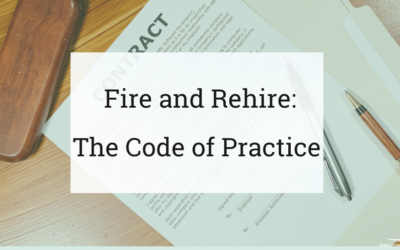When it comes to legal concepts, vicarious liability can sound intimidating. However, understanding its implications is crucial, especially for business owners, managers and HR teams.
Vicarious liability is a complex principle but in essence, it means that an employer can be held responsible for the actions or omissions of an employee.
What is Vicarious Liability?
Vicarious liability essentially means that an employer can be held legally responsible for the actions of their employees, this usually causes problems where an act causes harm to another. Even if the employer was not directly involved in the harmful act, they may still be held liable. Although this seems unfair, this liability arises from the employment relationship between the employer and the employee. There is however a legal defence to claims brought under vicarious liability, keep reading to find out more.
When Does Vicarious Liability Apply?
Vicarious liability can be applied in various situations. The key factor is whether the act or omission occurred within the “course of employment” and must cause harm or distress to another person.
In order to assess whether vicarious liability applies we need to assess each case on its own facts assessing, among other factors, the nature of the workplace, the roles of the people involved and where the incident occured. Providing that there was a sufficient link to the work or employment of the offending employee the employer could be held liable.
There are several areas of risk that business owners should be aware of.
Equality Act 2010 Claims
The Equality Act allows employees to bring many types of claims, but those of most interest here are discrimination and harassment.
By way of example, an employee suffers from schizophrenia a mental illness which for the sake of example is a disability. A collegue refers to them as a “nutter” and a “head case” and commits other acts that amounts to discrimination. The employee could bring a claim against both the discriminating colleague and the employer, even though the employer had no knowledge of the acts.
Christmas Parties
Christmas parties are a great time of year, however, they are fraught with risk for employers. Imagine a drunk employee physically attacks a colleague who they do not like. The altercation results in a few missing teeth and severe bruising for the victim. The business could be held liable if the party is an official work event paid for by the business. This is the same for other work events attended by employees.
Food Labelling
Following the tragic death of Natasha Ednan-Laperous in 2016 strict food hygiene rules have been introduced and have to be complied with. If an employee fails to comply with the rules in relation to food labelling or asking diners if they have allergies the business could be liable and result in criminal prosecution.
Mitigating Risks and Best Practices for Employers
As alluded to above there is a defence to vicarious liability but there are other ways to avoid claims under vicarious liability.
Clear Policies and Training
The law states that businesses can not be liable under vicarious liability if they have taken all reasonable steps to prevent the act that causes harm. The easiest way to demonstrate reasonable steps have been taken is to establish comprehensive policies and procedures that outline acceptable behaviour. Employers should regularly train employees on these policies to ensure understanding and compliance. It would be sensible to determine the high-risk areas in your business, for example, allergy awareness and ensure regular and detailed training. However, we recommend that all businesses should consider equality and diversity training for staff.
Due Diligence in Hiring
Conduct thorough background checks, verify references, and assess the qualifications of prospective employees. By hiring competent individuals, employers can reduce the likelihood of negligent actions.
Supervision and Monitoring
Maintain a system of supervision to monitor employee behaviour and ensure adherence to policies. Regularly evaluate and provide feedback to employees regarding their performance.
Prompt Investigation and Action
In the event of an incident or complaint, promptly investigate and take appropriate action. Addressing concerns promptly demonstrates a commitment to employee and public safety.
Conclusion
Vicarious liability can significantly impact employers, and understanding this legal concept is essential for HR professionals. By recognising when and how vicarious liability applies, employers can take proactive steps to mitigate risks, foster a safe work environment, and protect themselves from potential legal consequences. Remember, prevention and proactive measures are key to ensuring a responsible and compliant workplace.
Employment Law Solutions offer Employment Law advice and can assist with managing the risk in relation to vicarious liability. We always suggest that the first step in mitigation is diversity and inclusion training which can be offered by our lawyers. By offering a monthly HR retainer service you are able to benefit from legal advice and bolt on our Training Solution to help reduce the risk to your business. If you would like to discuss how we can support your business give us a call on 01270 781006.




